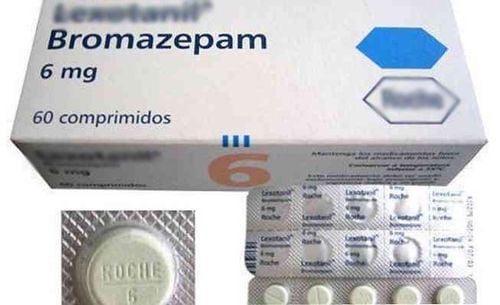Obsessive-Compulsive Disorder (OCD) is a mental health condition that impacts both the individual suffering from it and those around them. So, what exactly is OCD, and what are the signs to look for?
1. What is Obsessive-Compulsive Disorder?
Obsessive-Compulsive Disorder, also known as OCD, is a neurological disorder related to a person's thoughts and behaviors. It's a common psychological condition that manifests in various forms.
Individuals with OCD often engage in repetitive, meaningless behaviors or thoughts to alleviate stress or anxiety. Over time, OCD can significantly impact the lives of both the affected person and their loved ones.
While the exact cause of OCD remains unknown, several factors have been linked to its development:
- Changes in the brain or body, such as a lower serotonin levels in the brain
- Children infected with beta-hemolytic streptococci, specifically Group A Streptococcus, are more prone to OCD than other children.
- Engaging in a specific behavior for an extended period and developing a habit
- A family history of similar disorders
- Stress and anxiety, especially in sensitive individuals
Pregnancy or recent childbirth in women
2. Signs of Obsessive-Compulsive Disorder (OCD)
OCD is a mental health condition that is often overlooked, leading to worsening symptoms and making treatment more difficult.
There are many signs to identify this condition, but the line between being sick and not being sick is often very thin and depends on the degree of disorder. Here are some signs of OCD that you should know:
Excessive hand washing: People with OCD are always obsessed with the idea that their hands are full of germs, this is the most common sign of this disease. They often wash their hands thoroughly and are always afraid of the spread of germs from the environment.

Always wanting to check everything: People with OCD tend to check everything more than normal people, they always feel insecure about everything and need to check again and again to feel more secure.
Cleaning the house according to principles: People with OCD often have their own house cleaning principles and are forced to follow them, and the house must always be clean. They don't skip cleaning even if they're tired, always feeling like there are germs everywhere and equipping themselves with many house cleaning tools.
Obsessed with numbers: People with OCD are often obsessed with numbers, they often cause a lot of trouble for people around them when they ask them to be serious about numbers, feel overly anxious when they encounter unlucky numbers, or often count the number of people, goals, or amount of work…
Good organizational ability: Although OCD is a disease, it cannot be denied that people with this disease have the ability to organize everything extremely well, even perfectly. However, this ability also causes some problems for the patient and those around them, such as not being able to rest until the work is done, causing discomfort to others because of excessive detail, or slowing down the progress of work because of too much focus on details.
Magnifying violence issues: Violent conflicts are something no one wants. However, for people with OCD, the fear has been exaggerated to the point that they dare not go to public places for fear of being abused. In addition, the patient also has other fears such as fear of being abused by relatives for doing something wrong, fear of being bullied at school, fear of being assaulted when walking in deserted places…
Obsessions with sexual activity: People with OCD may have abnormal thoughts about sexual orientation, such as wanting to have sex with strangers, children or same-sex people, or even with colleagues or clients in the company... These sexual obsessions often appear in the thoughts of the patient, sometimes even themselves they don't want it either.
Excessive worrying about relationships: People with OCD are always worried about relationships, afraid of hurting the other person, and even always wanting to know the other person's thoughts to feel secure. In particular, people with OCD often feel insecure and anxious when they have conflicts with colleagues, friends, relatives, or make mistakes without knowing how to deal with them.
Expecting assurance: People with OCD often don't trust their own decisions and often ask for the opinions of others around them on issues that need to be self-decided. The patient always feels that following the opinions of others will make them feel more secure.
Extremely hate mirrors: People with OCD often have manifestations related to body dysmorphic disorder (a mental health condition that causes the patient to extremely focus on their physical appearance and leads to emotional distress afterwards), they hate mirrors very much or are very reluctant when looking in the mirror. Patients often don't believe compliments about their appearance and always feel that they were not born beautiful.

3. How is Obsessive-Compulsive Disorder (OCD) Diagnosed?
Obsessive-Compulsive Disorder (OCD) typically begins between the ages of 15 and 25. While men tend to develop the condition earlier, women have a higher overall prevalence. This disorder can cause significant distress for both the individual and their loved ones, impacting work, appearance, and social interactions, and can even lead to harming others due to negative thoughts.
Although there are many signs to recognize OCD, these signs are only relative. To determine if you have OCD, it's essential to consult a healthcare professional.
To assess this condition, doctors primarily rely on clinical symptoms. Therefore, patients should be honest and open with their doctors about all the problems they are experiencing to ensure a smooth and accurate diagnosis.
The diagnosis of OCD is usually done by a psychiatrist or neurologist. The length of the diagnostic process can vary depending on the patient's trust in the doctor. Children with OCD may require more time to express their concerns without fear. Both the doctor and the patient's family need to be patient throughout the diagnostic process.
OCD is not difficult to recognize if family and friends pay close attention to the patient. Early diagnosis can help patients receive timely treatment and recover from this mental health condition.
To arrange an appointment, please call HOTLINE or make your reservation directly HERE. You may also download the MyVinmec app to schedule appointments faster and manage your reservations more conveniently.
Reference articles: msdmanuals.com, hellobacsi.com







